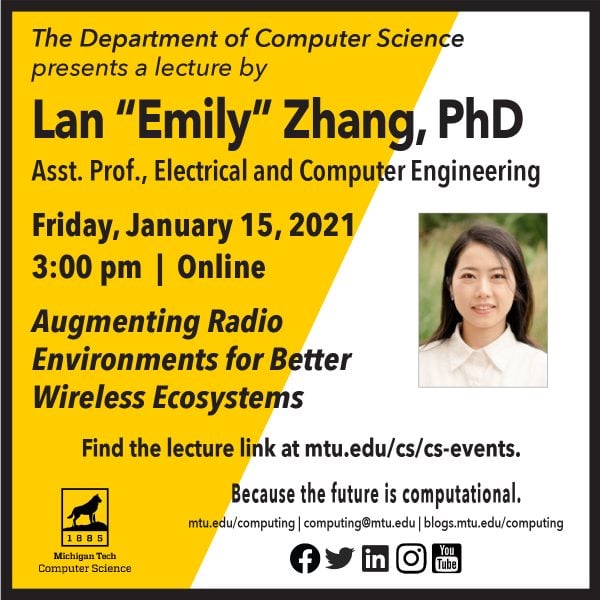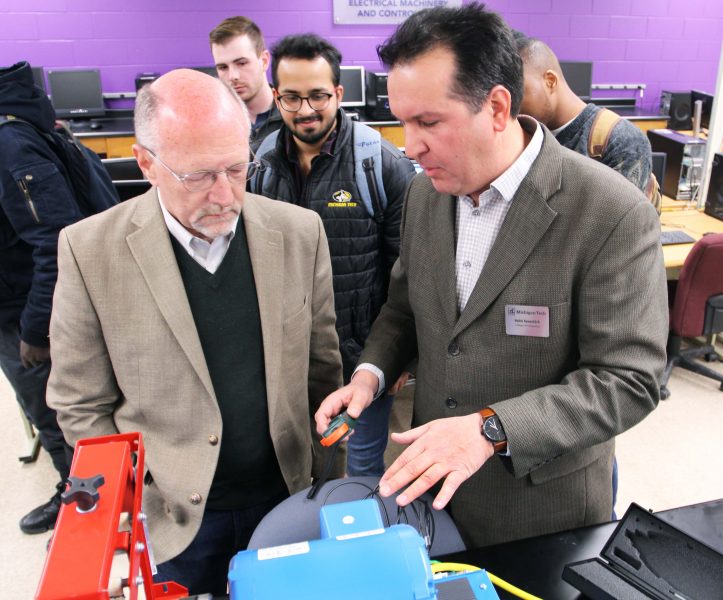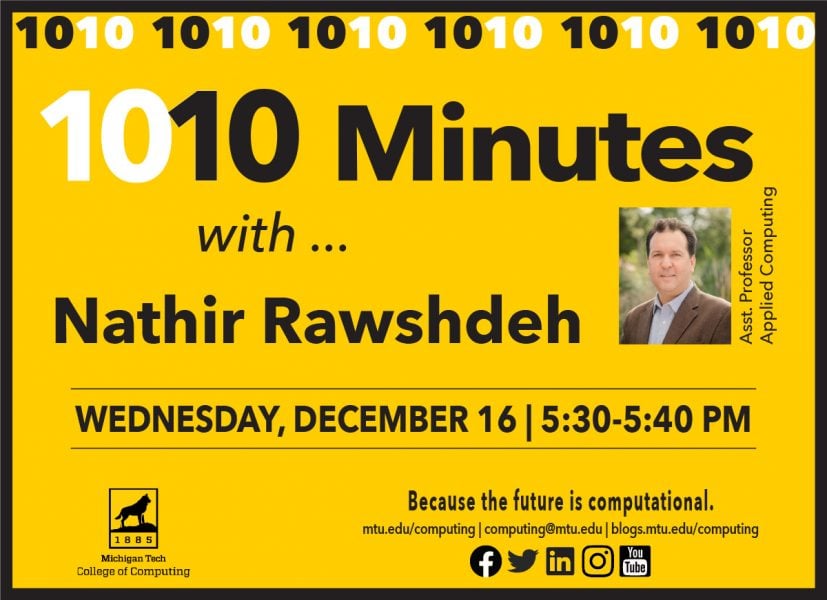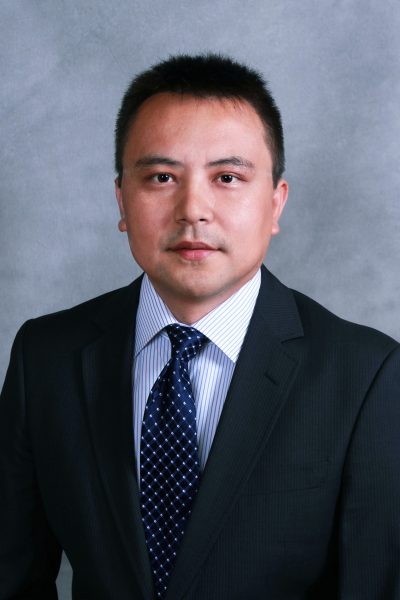
Assistant Professor Lan “Emily” Zhang, Electrical and Computer Engineering, will present her lecture, “Augmenting Radio Environments for Better Wireless Ecosystems,” on Friday, January 15, 2021, at 3:00 p.m., via online meeting.
The lecture is hosted by the Michigan Tech Department of Computer Science. Zhang is a member of the Cyber-Physical Systems (CPS) research group of the Institute of Computing and Cybersystems (ICC).
Zhang’s research interest span the fields of cyber-physical systems, distributed machine learning, wireless communications, and cybersecurity. In her talk, she will discuss a series of studies leveraging smart-surfaces, e.g., meta-surfaces or reconfigurable intelligent surfaces (RISs), to augment radio environments for various purposes.
Lecture Abstract
In the last several decades, wireless technologies have become well-established to fight against propagation obstacles. Most conventional efforts are focused on optimizing end devices, such as transmitters and receivers, in order to adapt to the given transmission environment for better communications. However, the recent rapid convergence of the cyber and physical worlds (Cyber-Physical Systems or CPSs) presents unprecedented challenges to the wisdom of conventional design. Given ever-growing service demands, as well as the diverse wireless application scenarios, it is critical to adaptively augment the radio environments in a cost-effective way, while maintaining the aesthetic nature of living environments.
In her talk, Zhang will discuss a series of studies leveraging smart-surfaces–e.g., meta-surfaces or reconfigurable intelligent surfaces (RISs)–to augment radio environments for various purposes. Specifically, she will focus on three promising areas for enhancing the throughput and reliability of wireless communications, mitigating the physical-layer security threats, and facilitating wireless sensing activities. Both model-based and learning-based methods will be used for theoretical and practical analysis.
Biography
Dr. Lan Zhang is an assistant professor in the Department of Electrical and Computer Engineering at Michigan Tech. She received a Ph.D. degree in computer engineering from the University of Florida in 2020, and M.S. and B.Eng. degrees in telecommunication engineering from the University of Electronic Science and Technology of China in 2016 and 2013, respectively.
Zhang has served as a technical program committee member for several respected conferences, such as NeurIPS-SpicyFL 2020 and the 2020 IEEE IFOCOM poster/demo section. She has also served as reviewer for leading journals, such as IEEE Transactions on Communications, IEEE Transactions on Vehicular Technology, IEEE Transactions on Mobile Computing, and IEEE Transactions on Wireless Computing.





